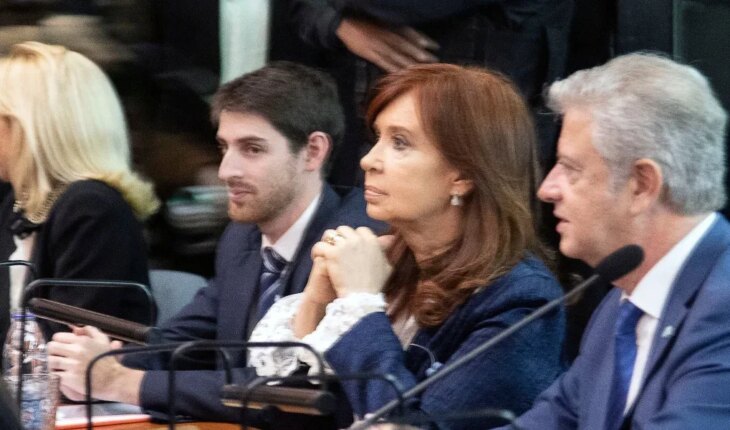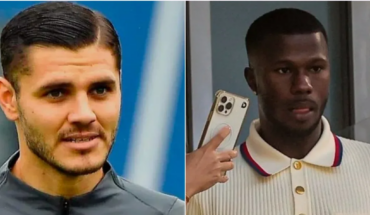This Tuesday, December 6, the judges of the Federal Oral Court 2: Jorge Gorini, Rodrigo Giménez Uriburu and Andrés Basso will announce the sentence of the trial mediatized as “Vialidad”, in which the main defendants are Vice President Cristina Fernández de Kirchner, former government officials and businessmen accused of corruption.1. What is being investigated? Within the case, it is investigated whether there was direction in the public road works of Santa Cruz between 2003 and 2015, during the presidencies of Néstor Kirchner and Cristina Fernández de Kirchner, towards the company Austral Construcciones owned by the businessman Lázaro Báez, and which in that period benefited from the award of 51 public road works with national funds. It investigates whether there were overpricing, unjustified delays or unfinished work.2. What is Cristina Fernández de Kirchner accused of? The Vice-President is accused of having committed the crimes of illicit association, as a boss, and fraudulent administration of public funds. The first of the crimes, according to the Criminal Code of the Nation, provides for a penalty of 3 to 10 years in prison. The second, from 2 to 6 years old. For both crimes and according to the evidence presented, prosecutor Diego Luciani requested a sentence of 12 years in prison and disqualification from holding public office for life for Fernández de Kirchner. The prosecution considers that she presented sufficient evidence of the guilt of the Vice President as head of an organization dedicated to directing public works towards a businessman friend. 3. At what time is the judgment of TOF 2 known? Tomorrow at 9.30 a.m. the former member of the Santa Cruz Road Agency, Juan Carlos Villafañe, will be able to make use of his last words, and then the magistrates will announce the final veredícto, which is expected to be close to noon/afternoon.4. How many instances of appeal are there? The decision of the Federal Oral Court 2, whatever its decision, can be appealed to the Federal Chamber of Criminal Cassation, which is the highest court in criminal matters in the country. This file involves Chamber IV of the court, which is made up of the judges: Mariano Borinsky, Gustavo Hornos and Carlos Carbajo. In the event that the parties are not satisfied with the resolution and consider that any constitutional right was violated in the process, they may go via extraordinary appeal or complaint to the Supreme Court of Justice of the Nation. None of the judicial bodies has deadlines to resolve these appeals.5. Can CFK be unable to run for office? The Vice President would be unable to be a candidate only if the following possibilities are combined: 1) that there is a conviction, 2) that the conviction is final, 3) that it is for a crime with a custodial sentence (more than 3 years), as in this case, and 4) that it is in execution.6. What does it mean for the conviction to become final? The sentence becomes final when there are no appeals pending resolution in Justice. In the case of the Vice President, if there is a conviction by the Federal Oral Court 2, as detailed above, the defense can appeal to the Criminal Cassation Chamber and, in the event that this court confirms the sentence, it could still appeal to the Supreme Court of Justice of the Nation. Only if the highest court upheld the conviction would it be a final sentence. Although it is not possible to know how long the process will take, it usually takes several years to process appeals. 6. Could CFK go to jail if he has a firm conviction? The 2008 reform of the Law on the Execution of Custodial Sentences contemplates 6 cases on which magistrates can rely to grant house arrest: 1) “when a detainee exceeds 70 years of age”, Fernández de Kirchner is currently 69 years old and on February 19 he would turn 70, That is to say that if there is a conviction with a final sentence, the magistrates can decide whether or not to be placed under house arrest. (2) “When the detainee is prevented from being properly treated by an illness by a prison service”; (3) “when the detainee is terminally ill”; (4)”when confinement involves inhuman treatment of a detainee with disabilities”; (5) “a pregnant woman”; and (6) “to the mother of a child under 5 years of age or a person with a disability”. In this way, the decision of whether the Vice-President, in case of having a conviction with a final sentence, will go to house arrest will be in the hands of the execution judges.
Road Cause: seven cláves to understand what will happen tomorrow after the sentence
December 5, 2022 |





